Admission to the Master of Business Administration (MBA) program at FMS Delhi is based on a valid CAT score. Applicants must hold a minimum of a three-year bachelor's degree from any specialization to be eligible. The application form, available on fms.edu, incurs a fee of INR 1000 for general category students and INR 350 for SC/ST/PwD applicants. The admission process includes submitting an online form that requires a Statement of Purpose (SOP).
FMS evaluates candidates through a Composite Score that calculates CAT scaled scores in Verbal Ability (40% weight), Logical Reasoning and Data Interpretation (30%), and Quantitative Ability (30%). The final selection criteria assign weightage as follows: CAT score (50%), personal interview (15%), extempore (5%), and SOP (10%). Additionally, marks from Class 10th and 12th are considered, with 10 marks awarded if scores exceed 75%, and 5 marks for scores between 60%-75%.
Female candidates are granted a 5-mark bonus in both assessment stages. Shortlisted candidates are invited for a personal interview, conducted solely at the college premises, and following interviews, selection lists are promptly released. Reservation benefits align with government norms and require submission of original certificates during admission. The program commences with seats being filled by August, concluding the admission process.


___10/thumb-0.png?h=189&w=144&mode=stretch)
___10/thumb-0.png?h=221&w=261&mode=stretch)
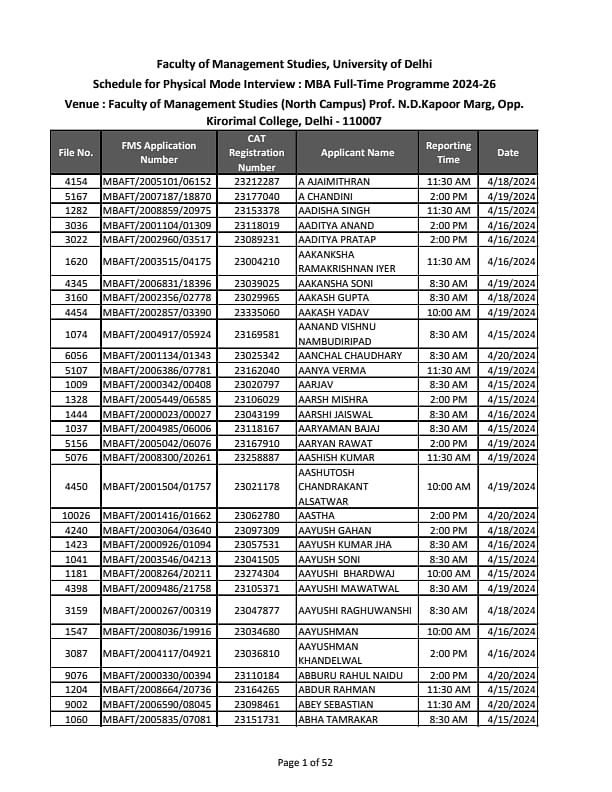
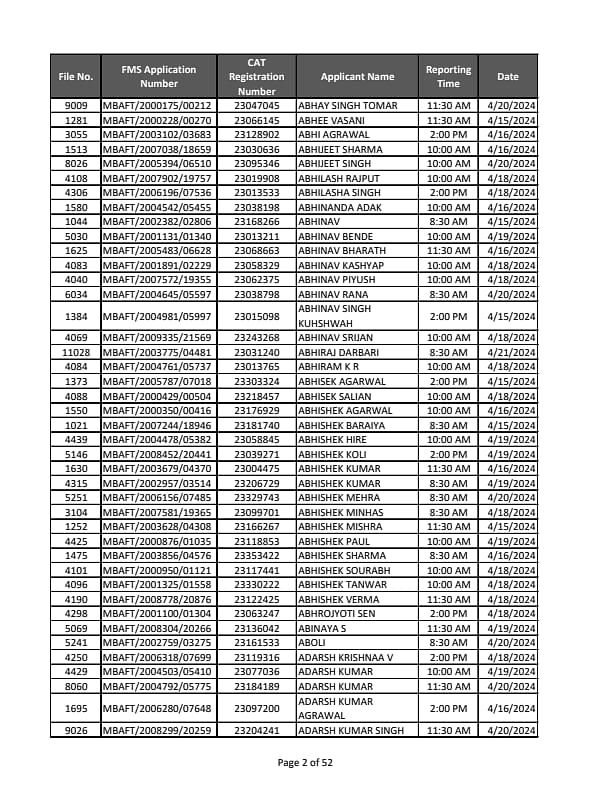
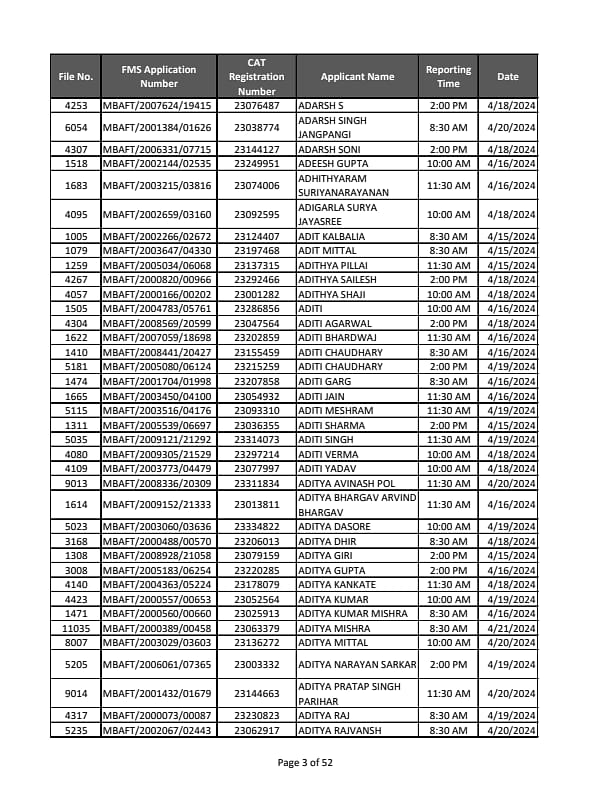
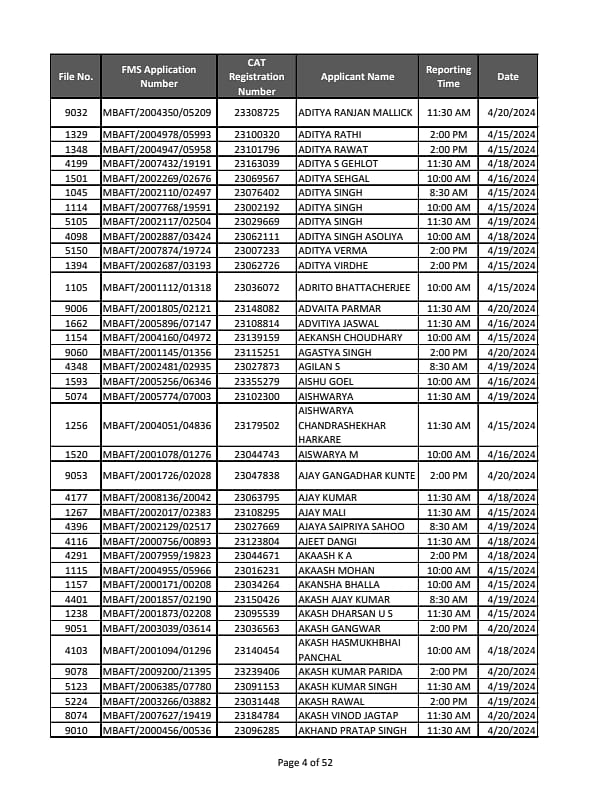
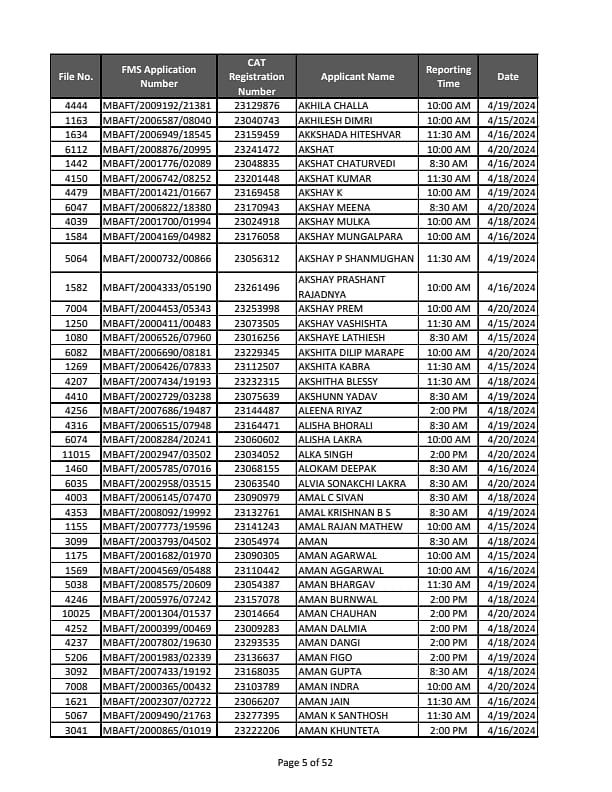
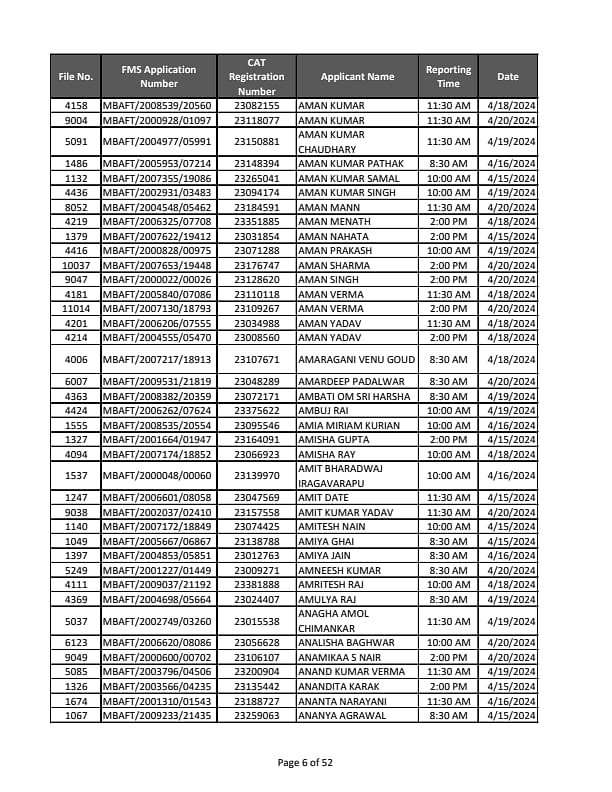
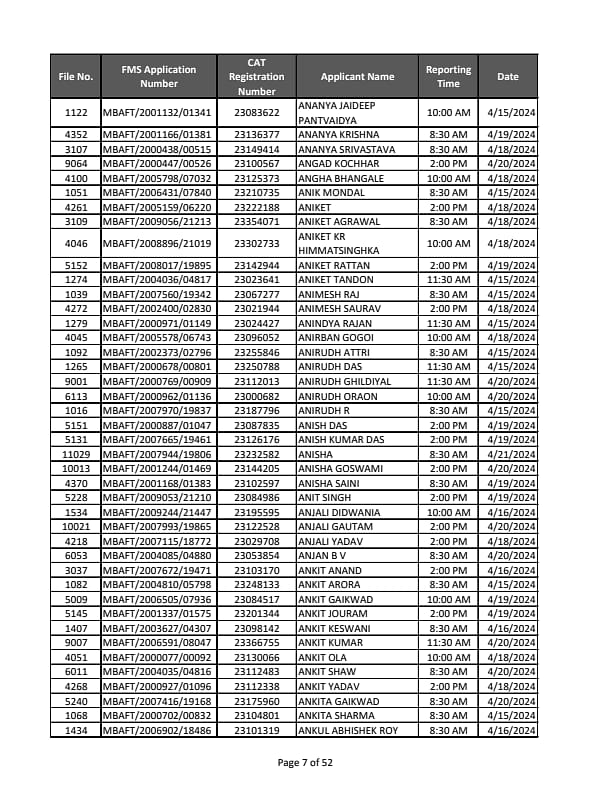
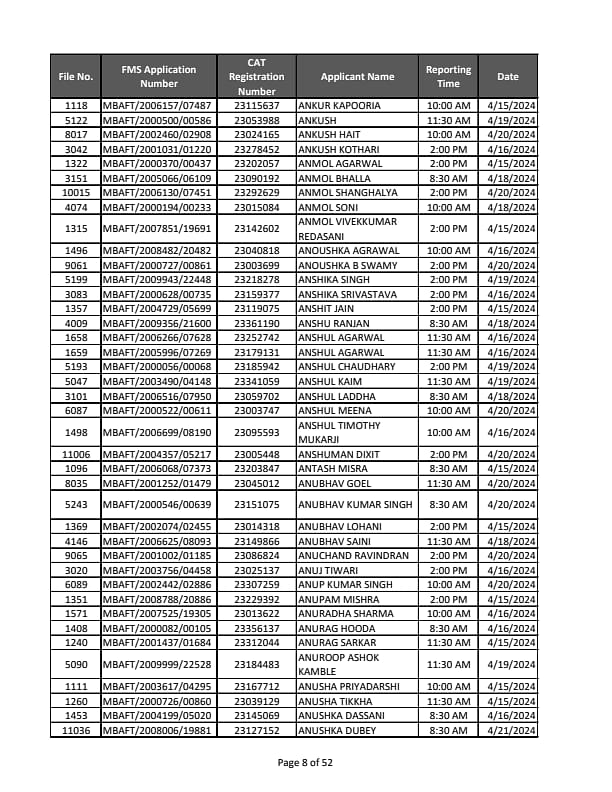
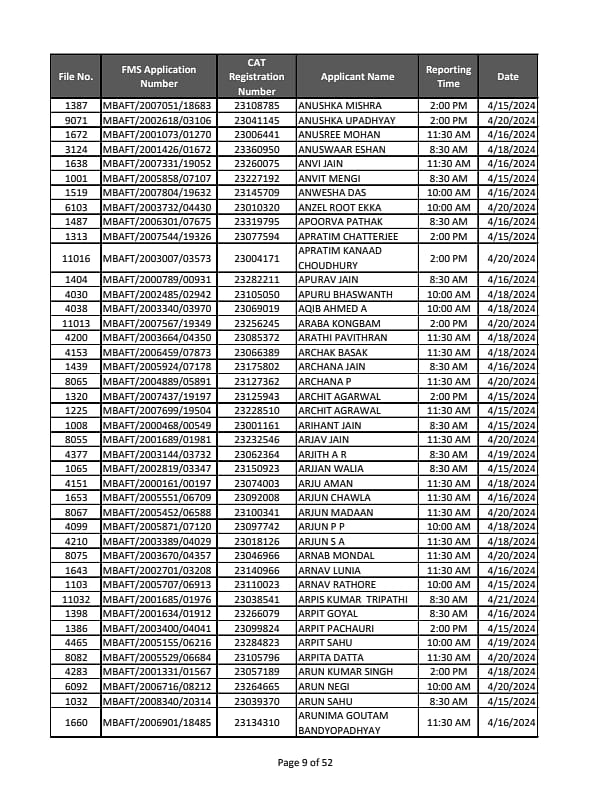
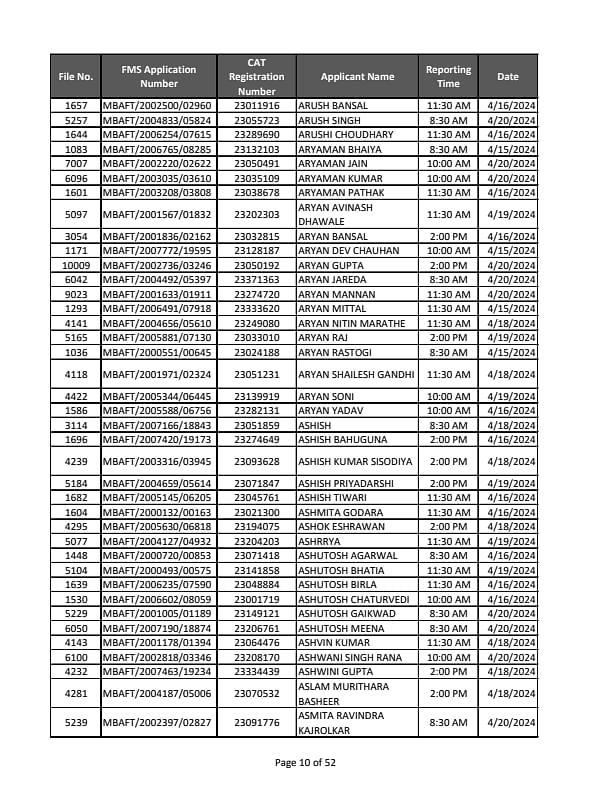
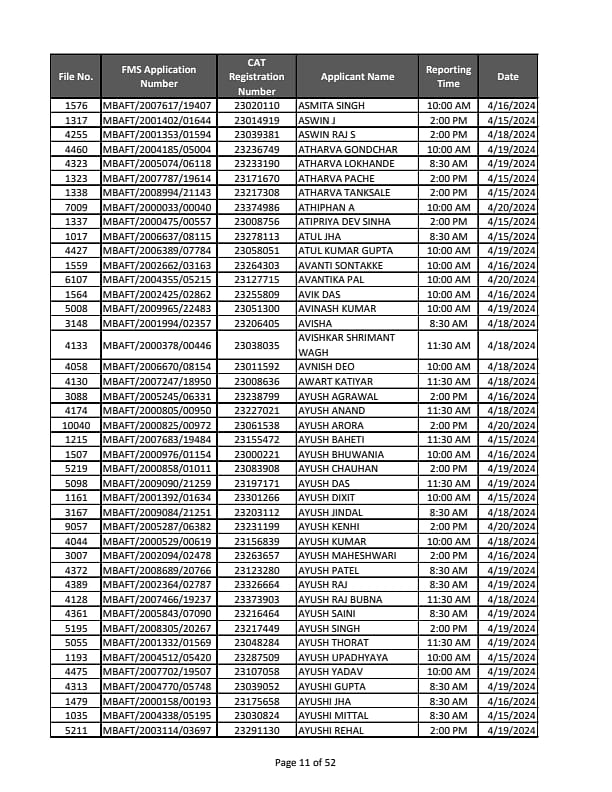
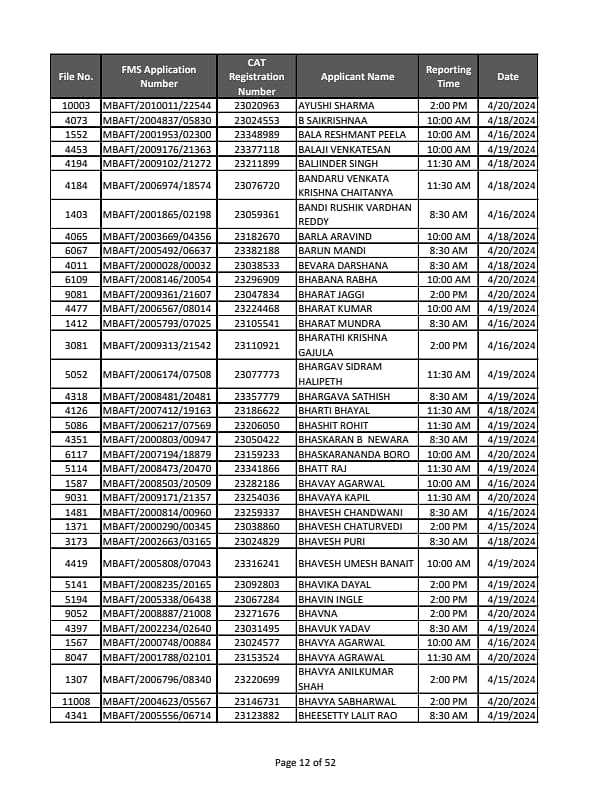
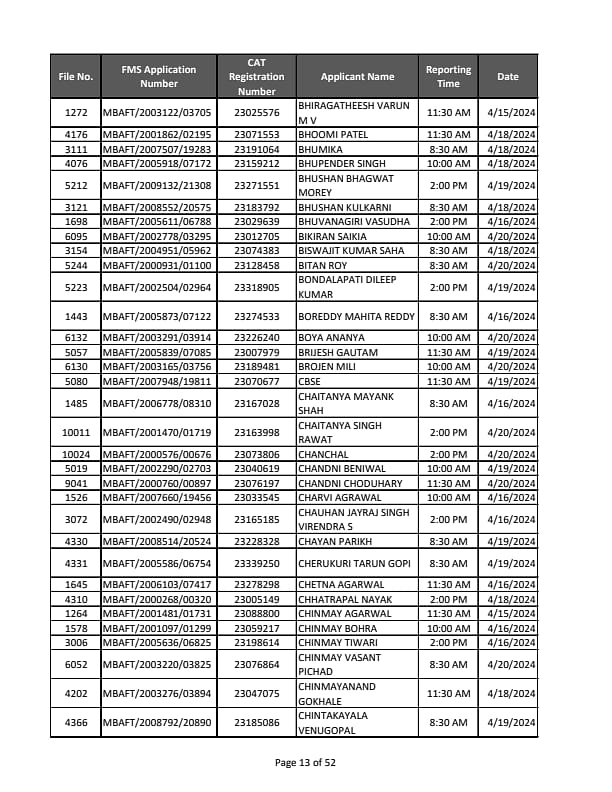
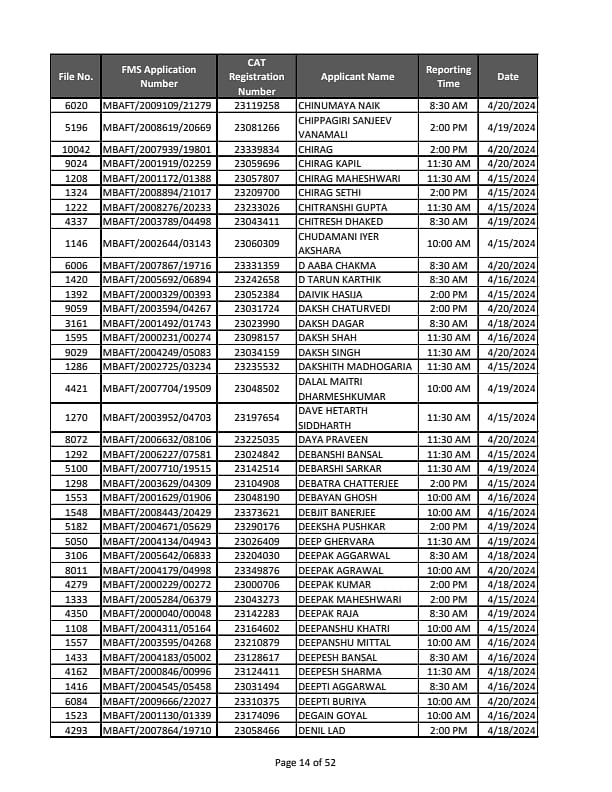
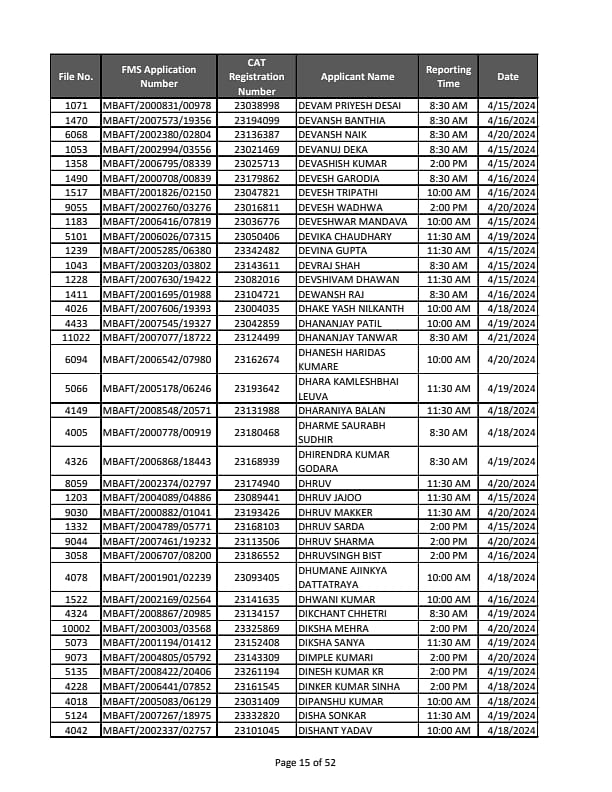
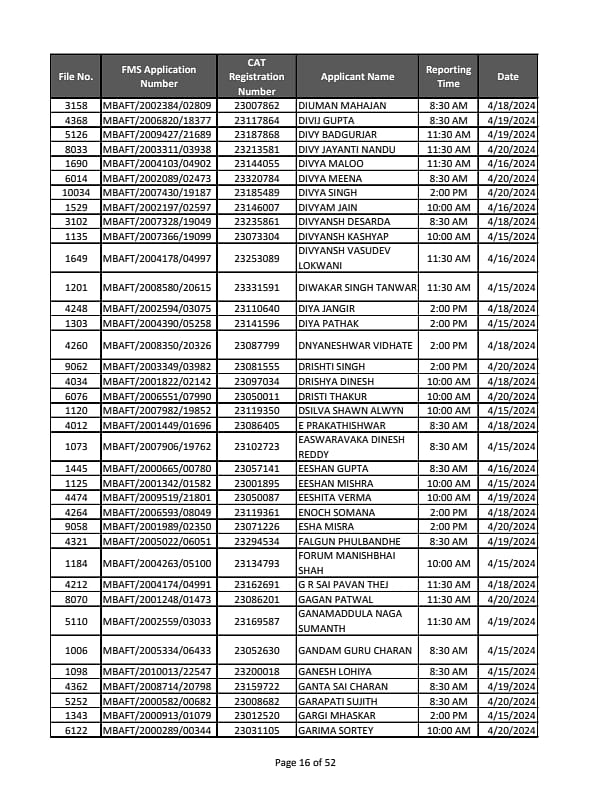
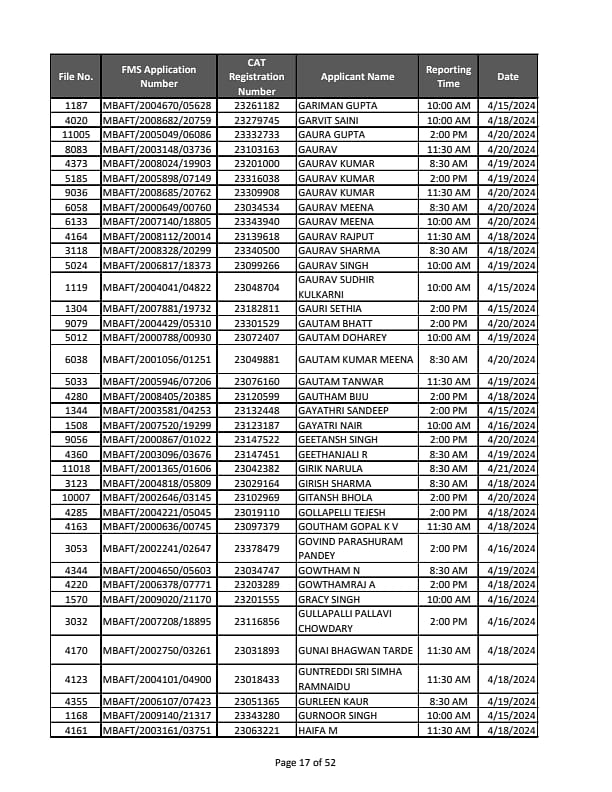
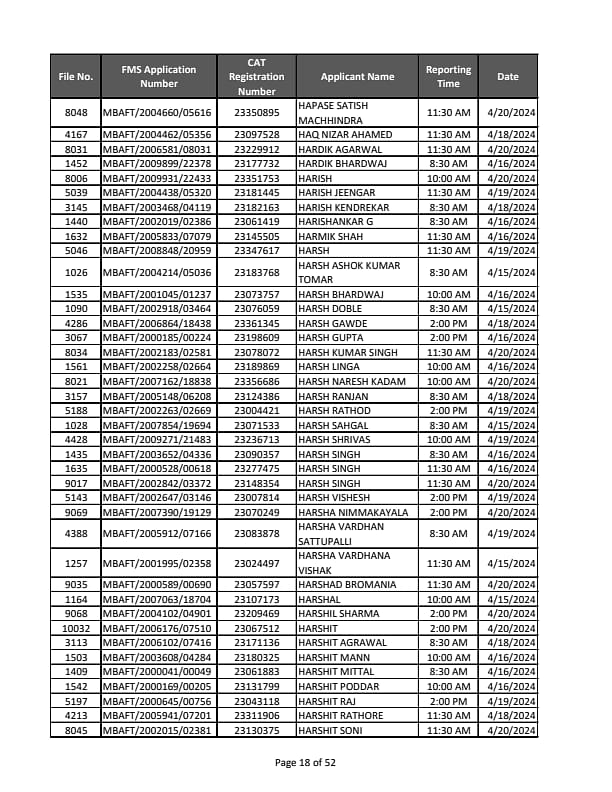
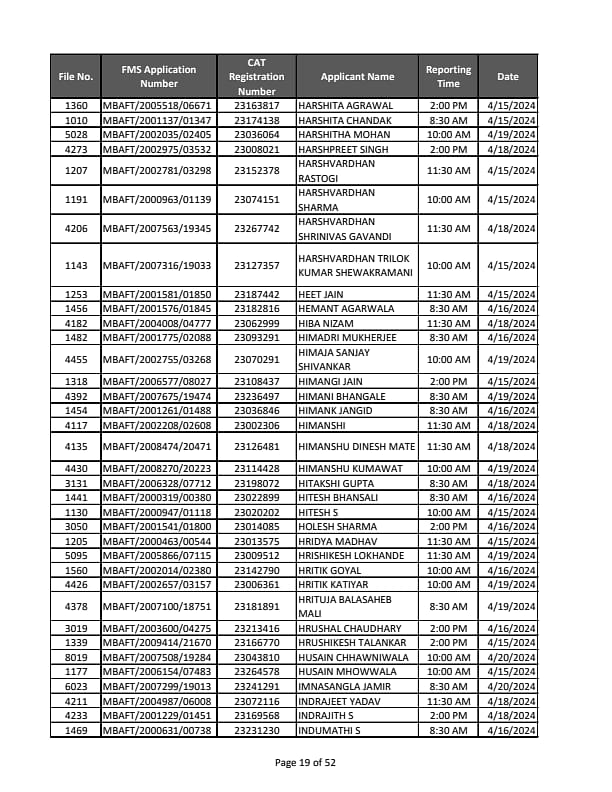
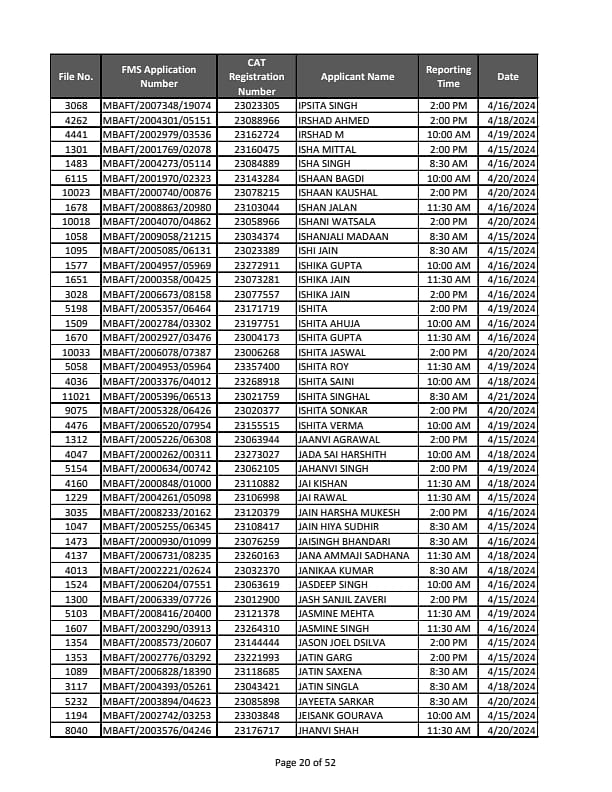
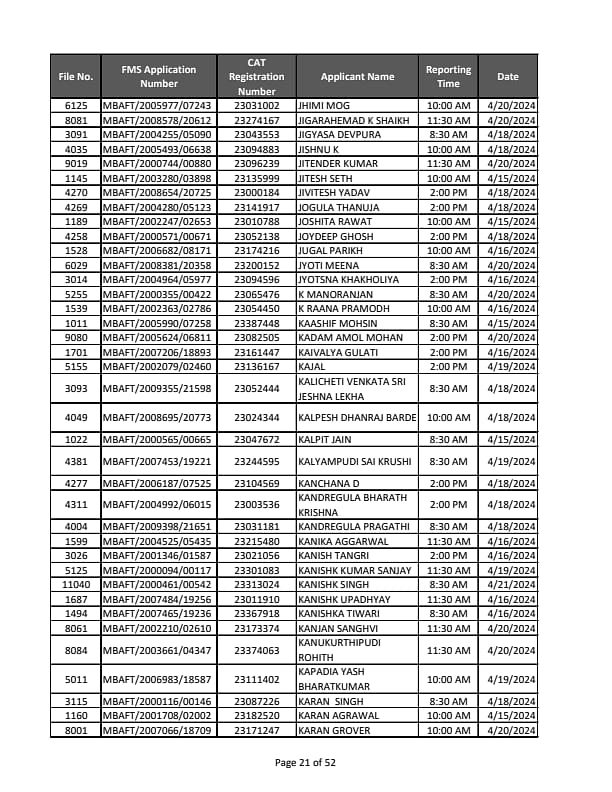
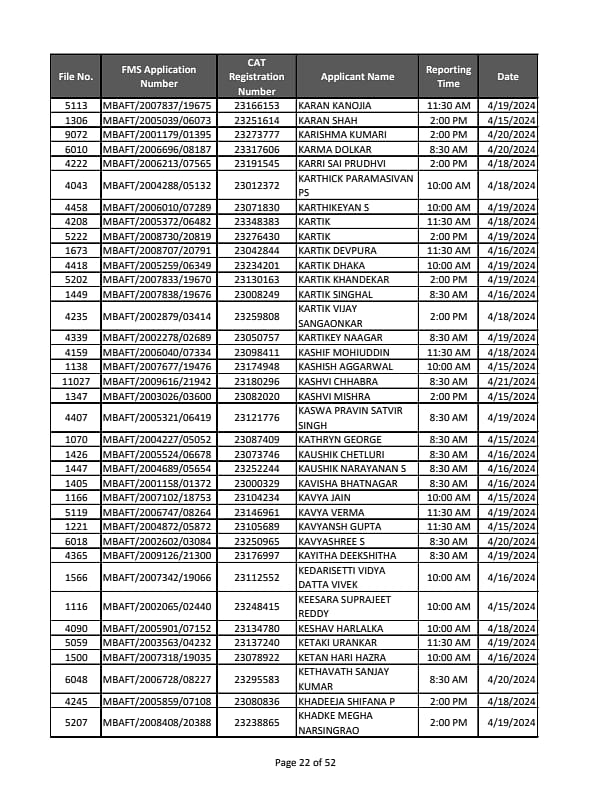
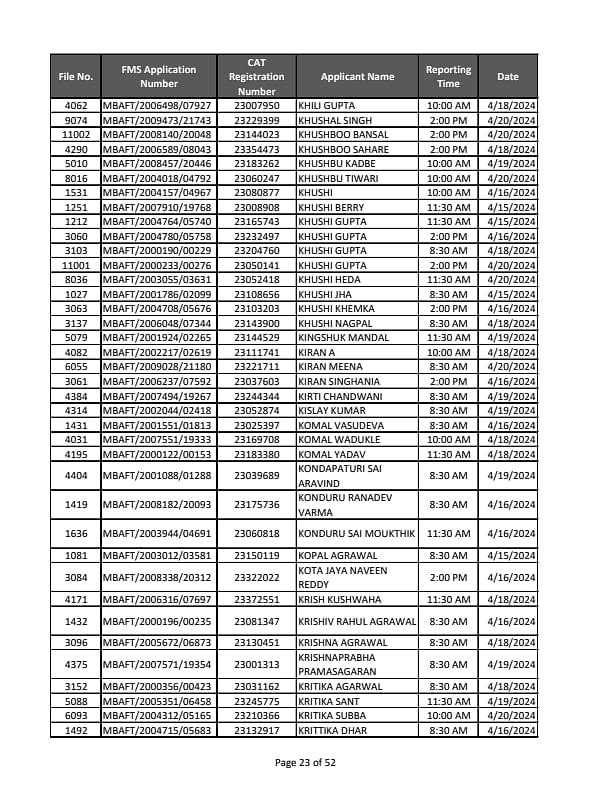
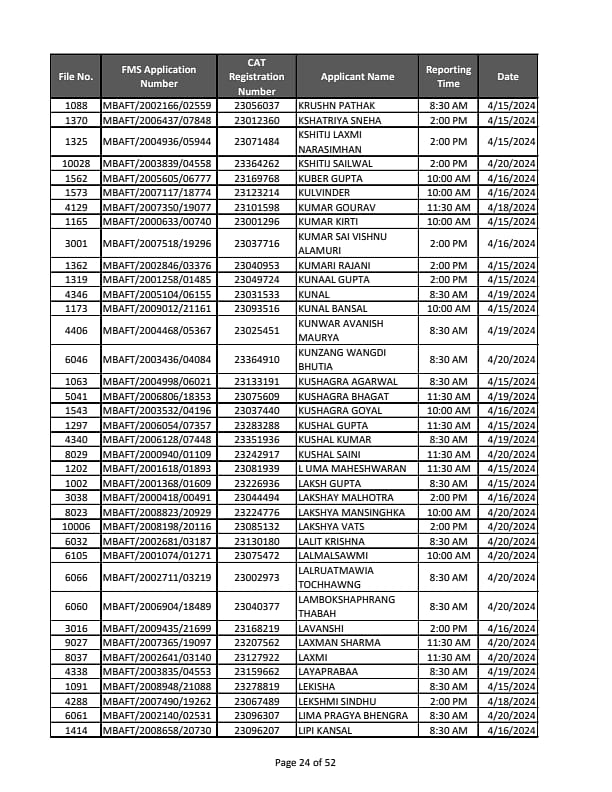
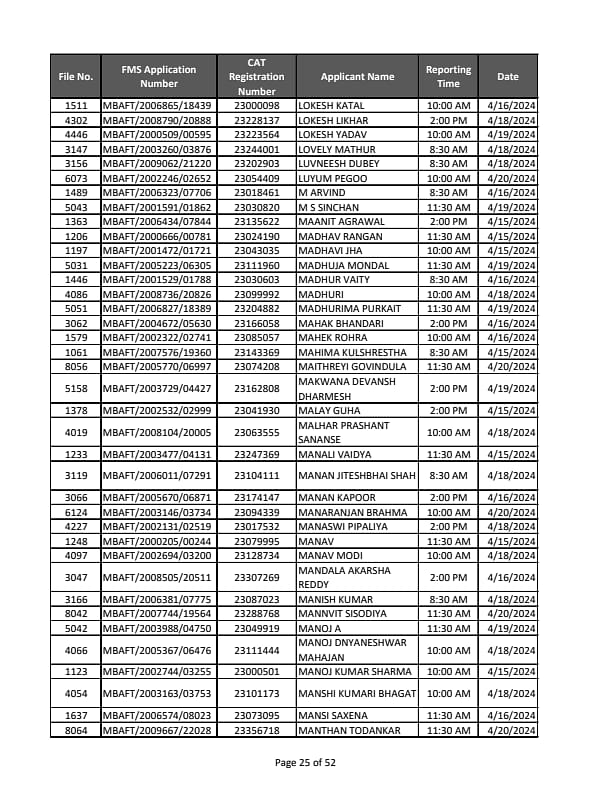
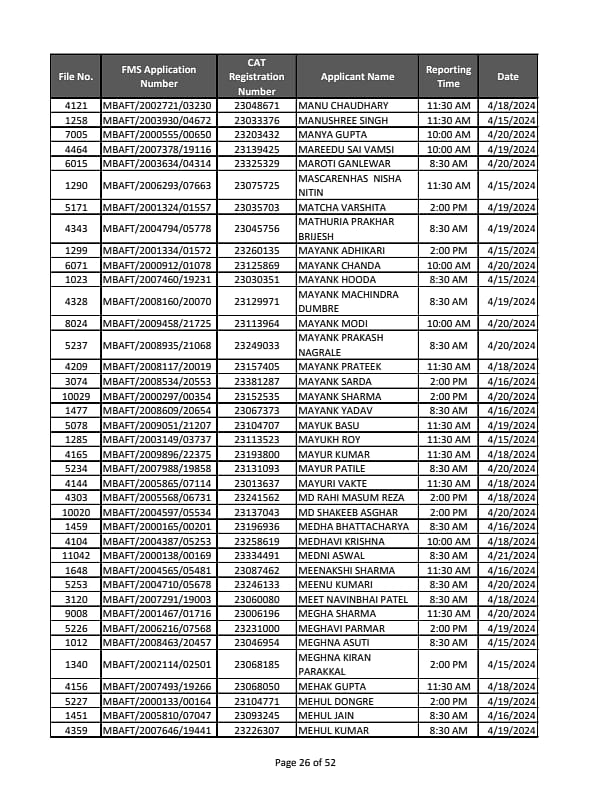
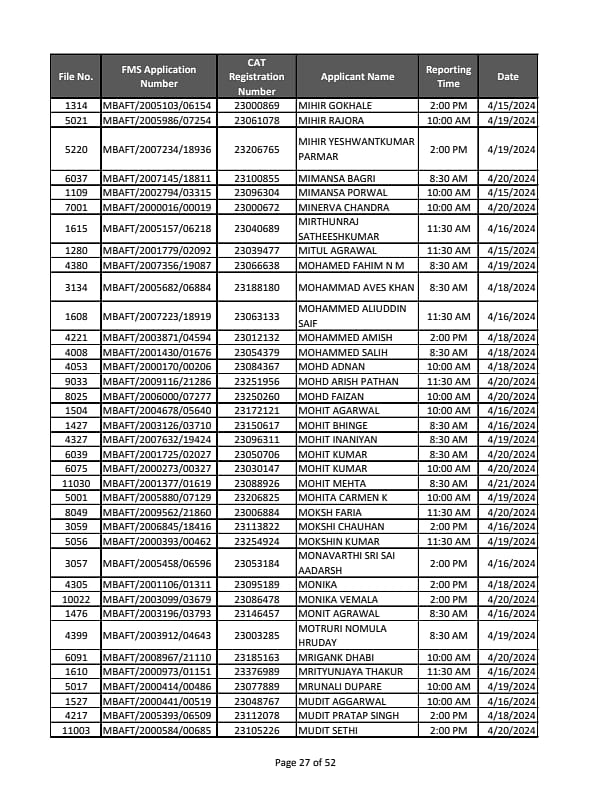
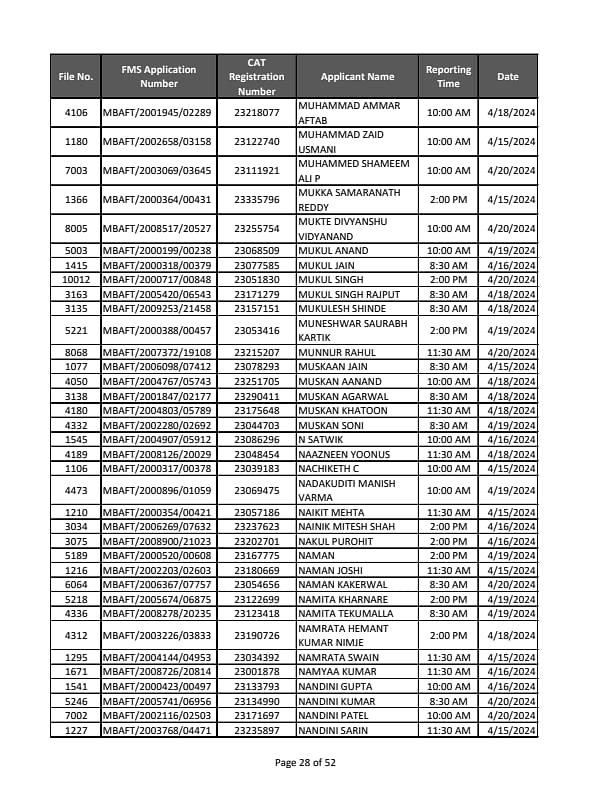
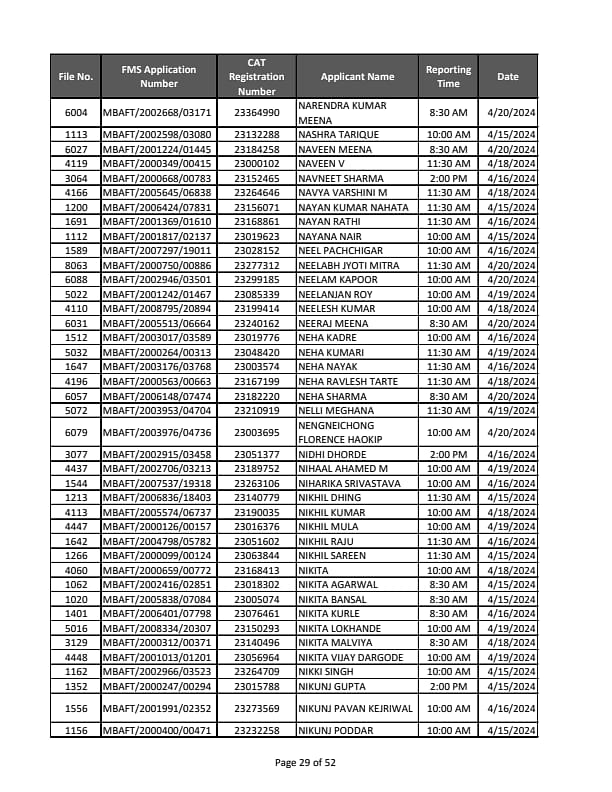
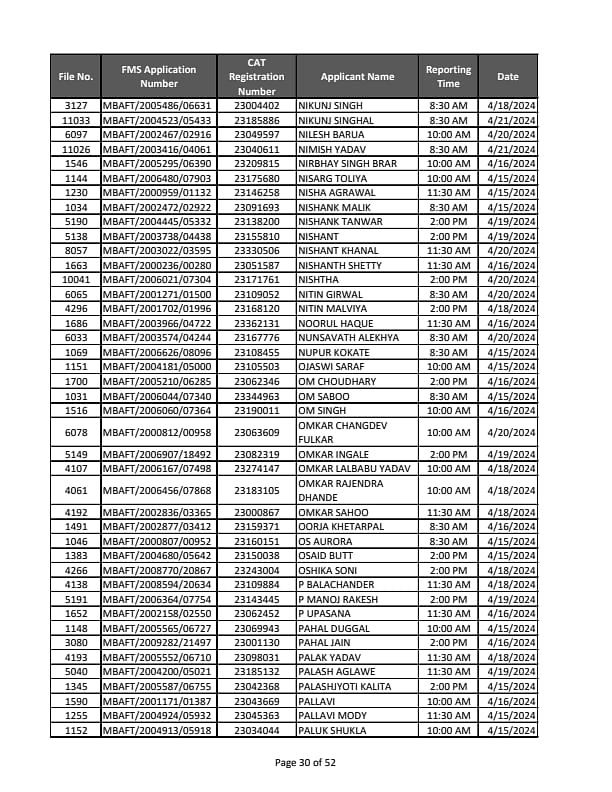
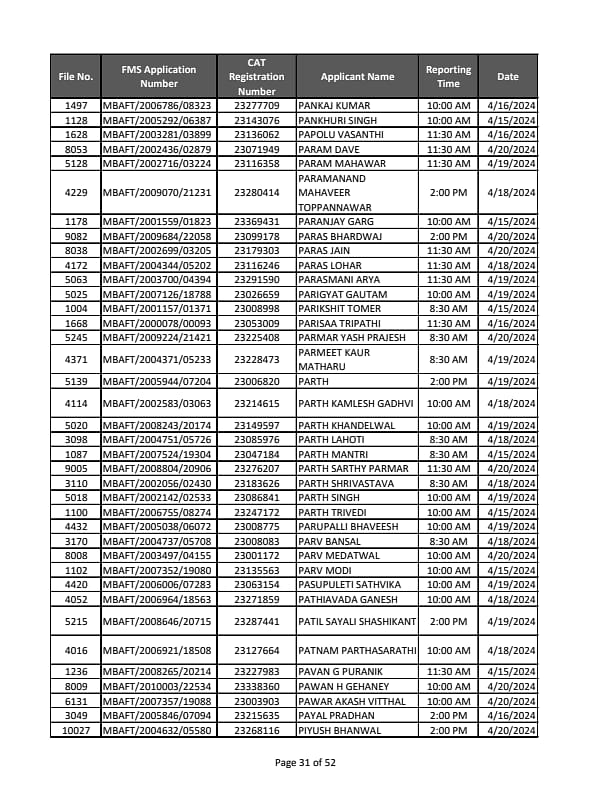
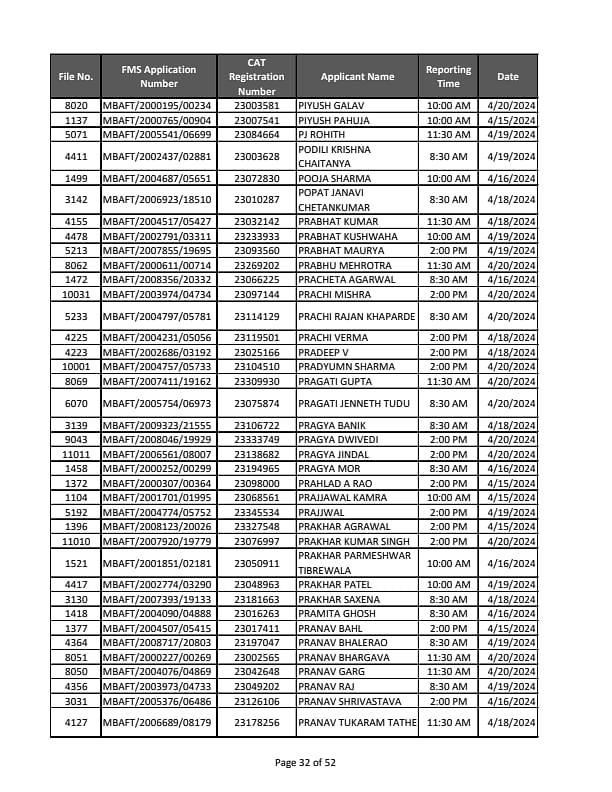
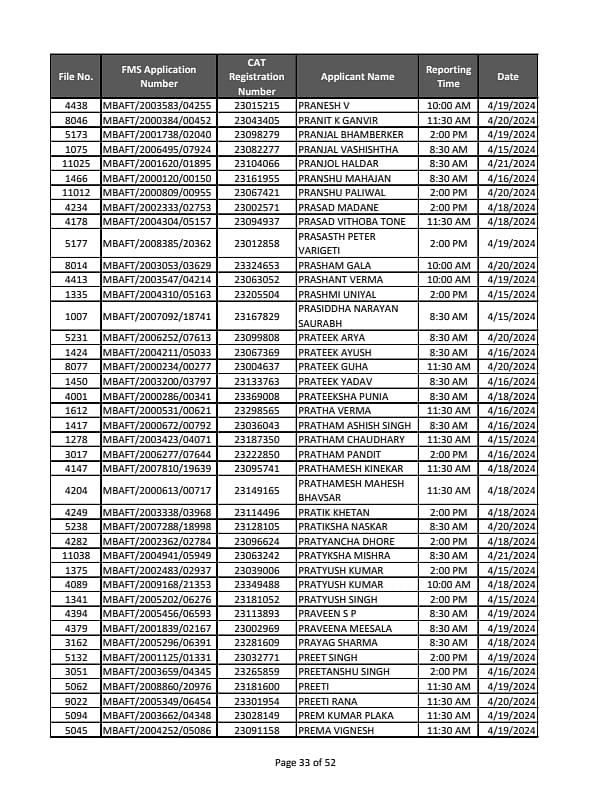
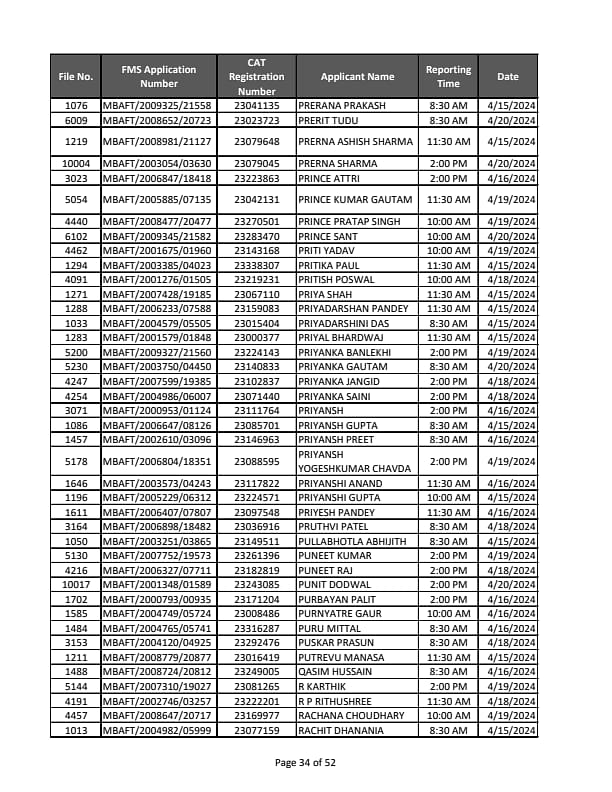
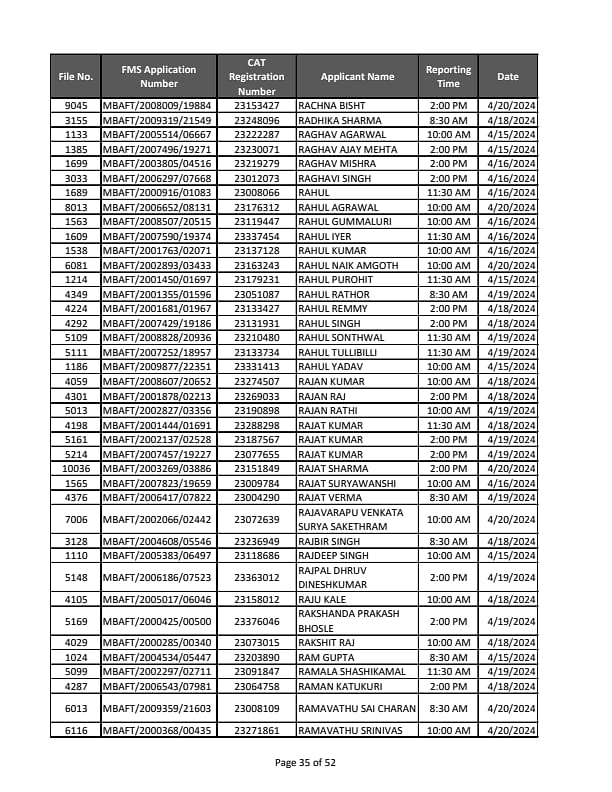
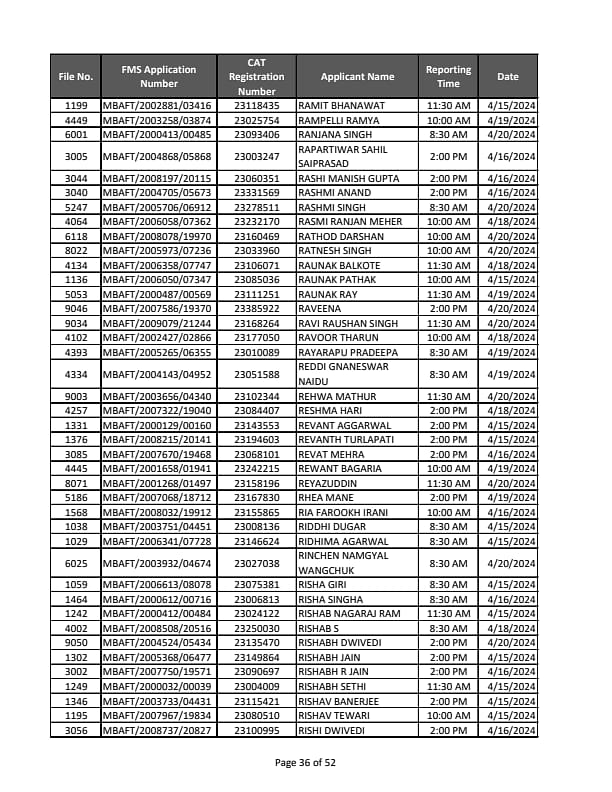
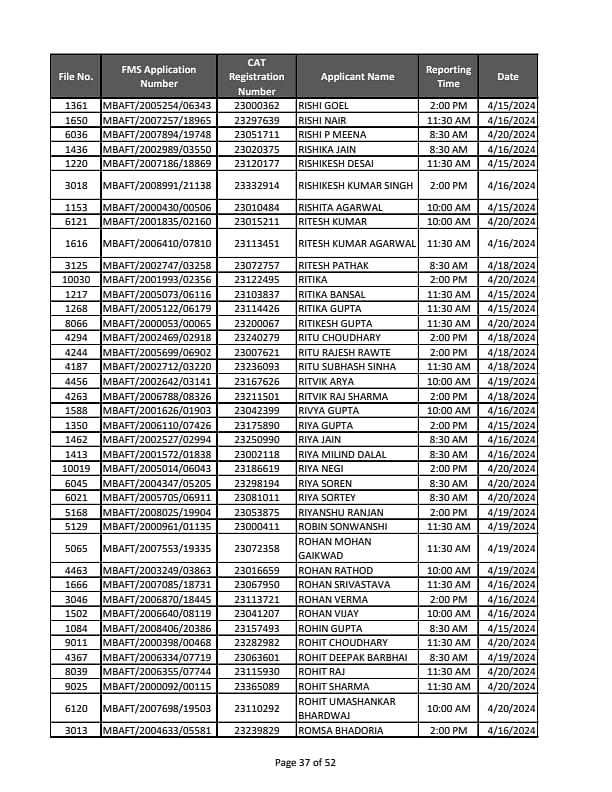
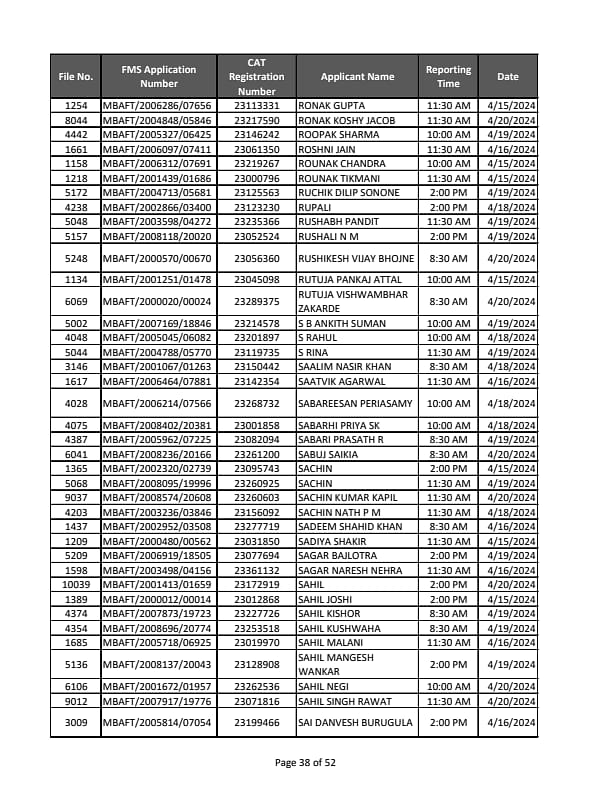
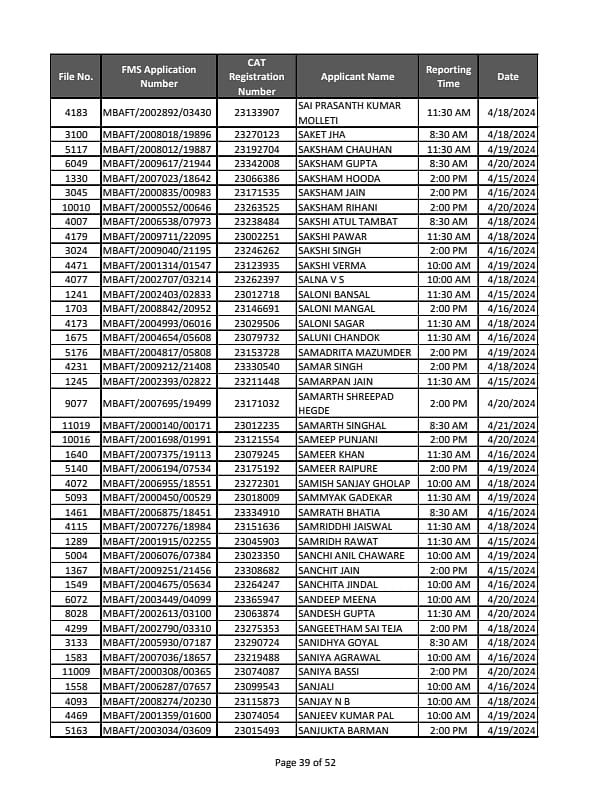
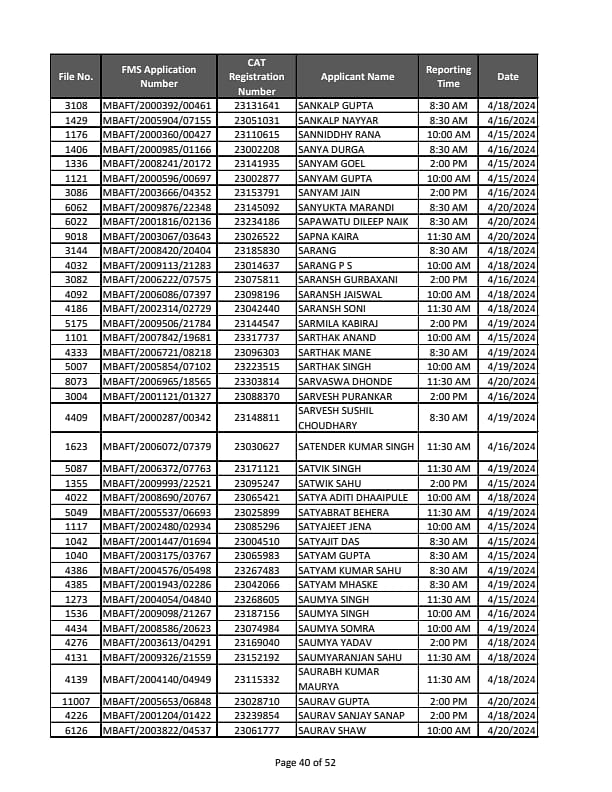
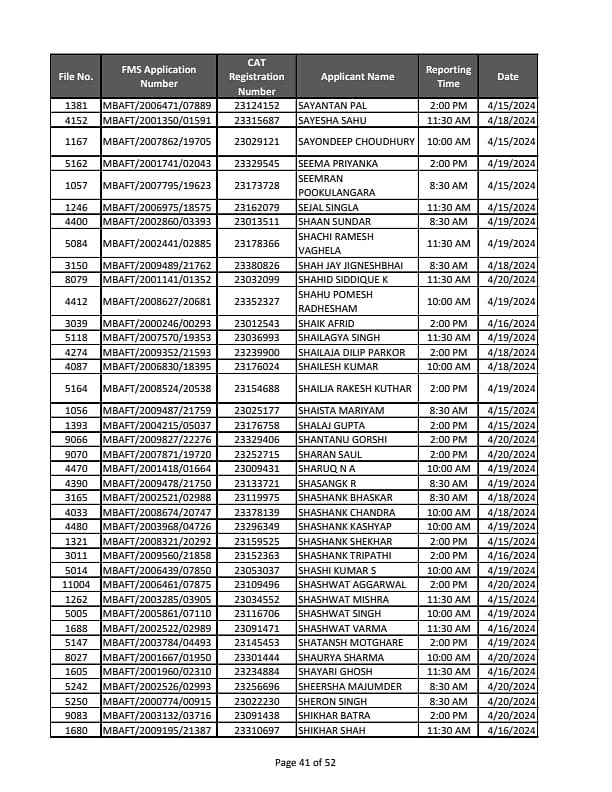
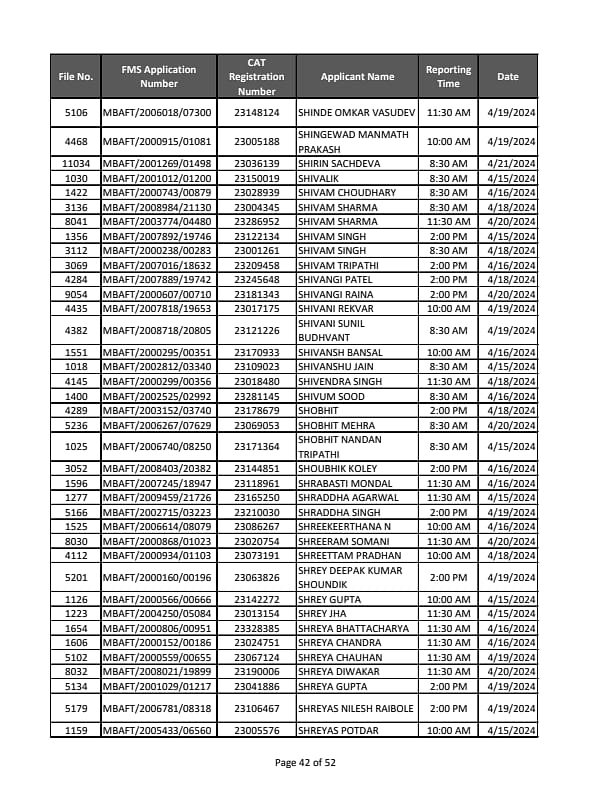
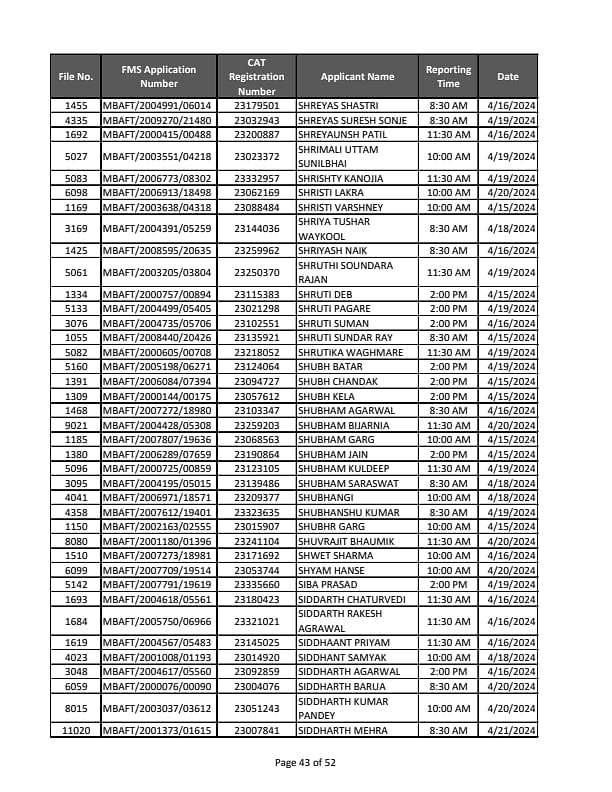
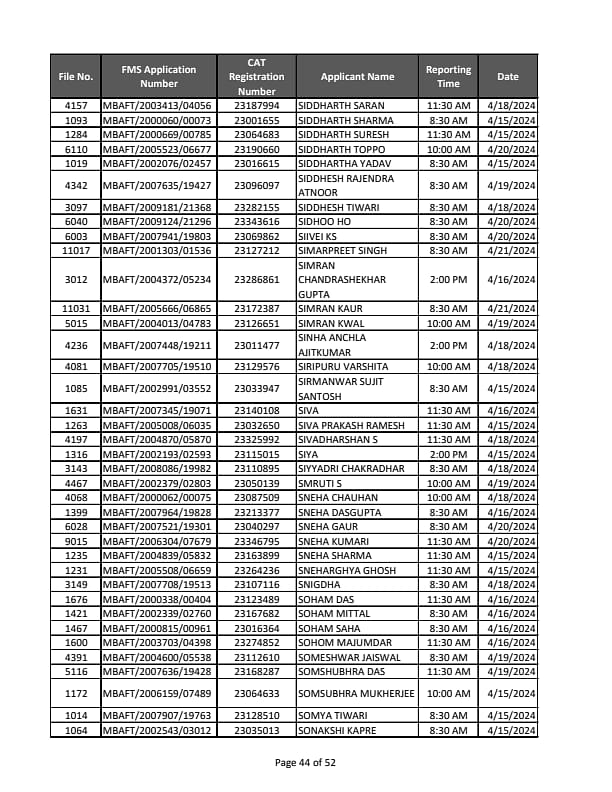
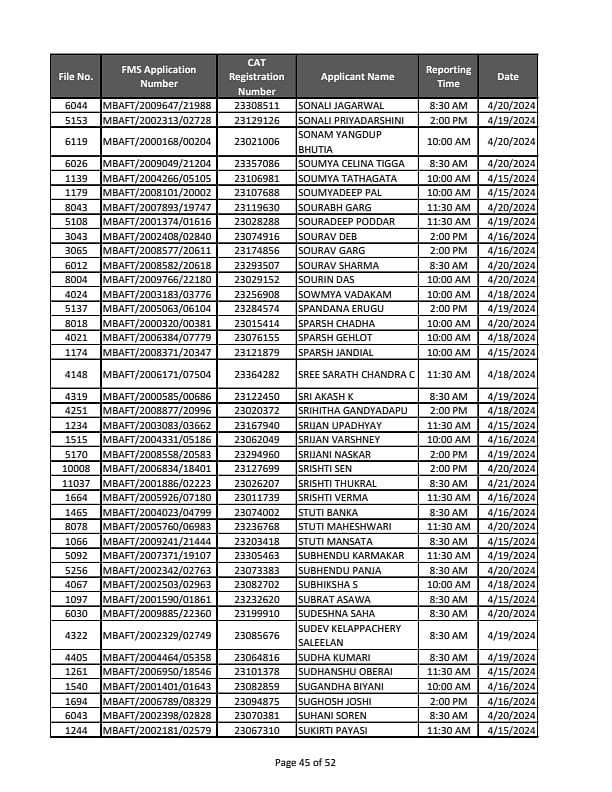
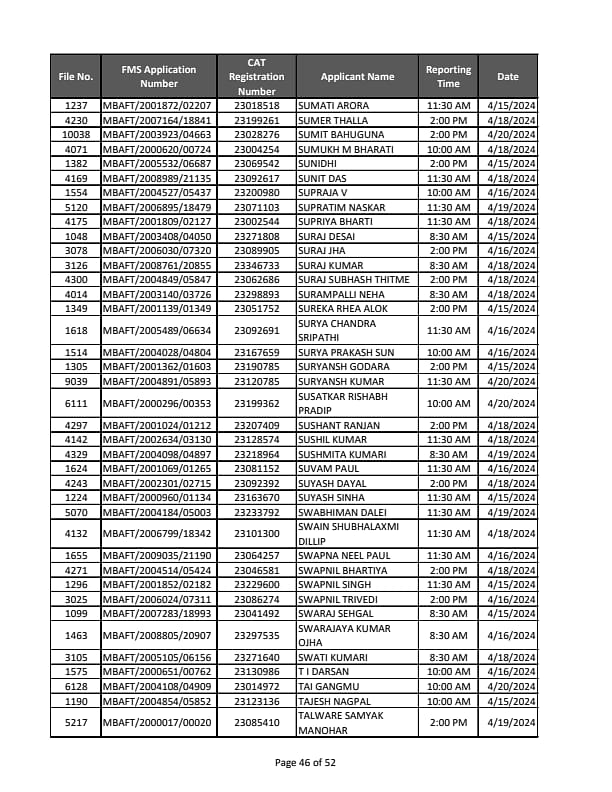
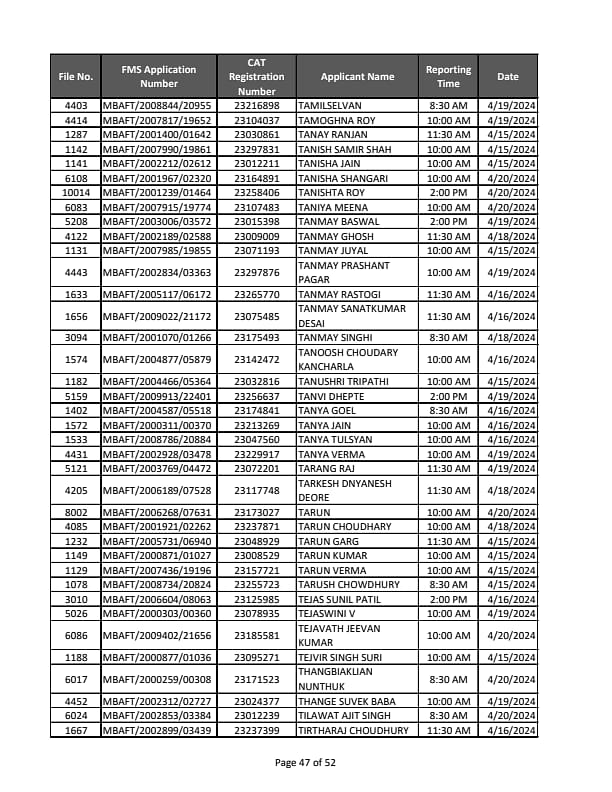
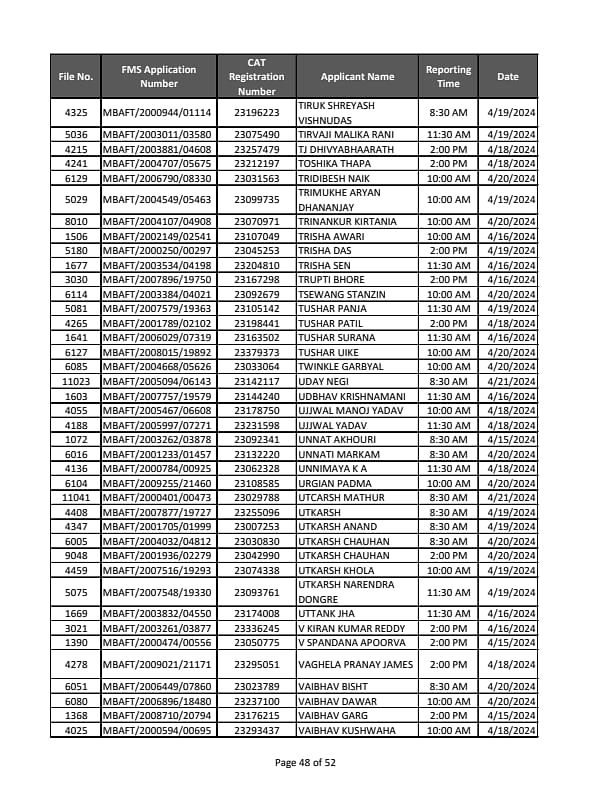
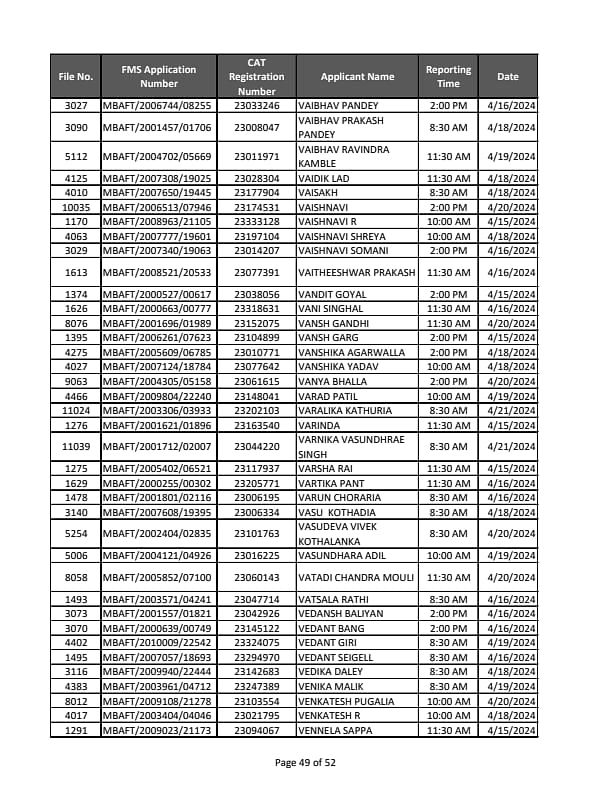
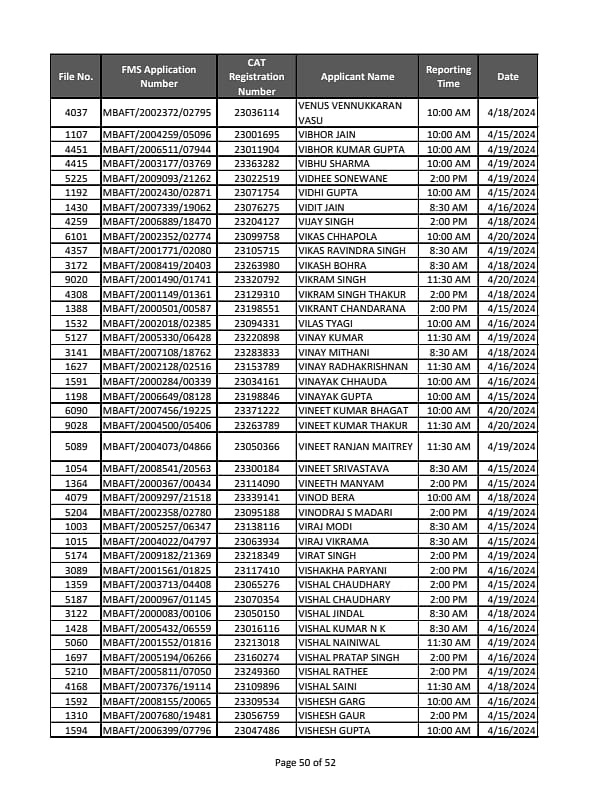
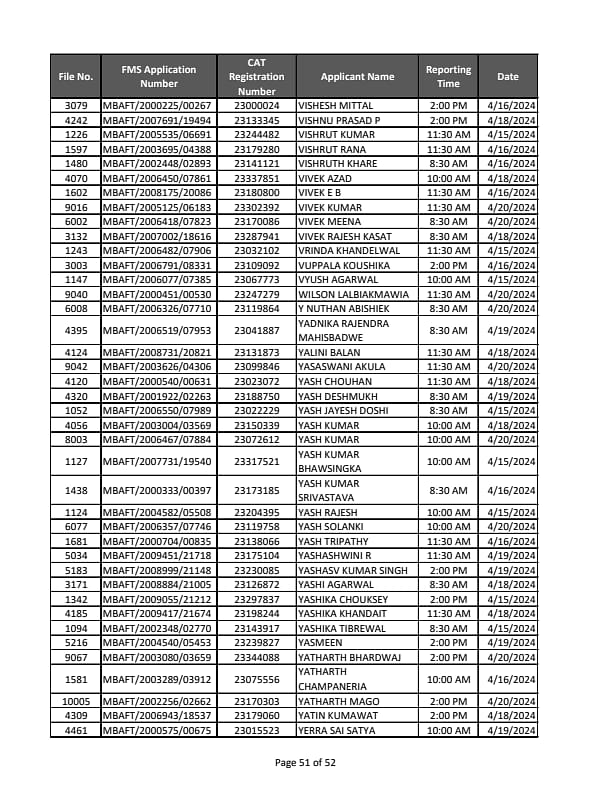
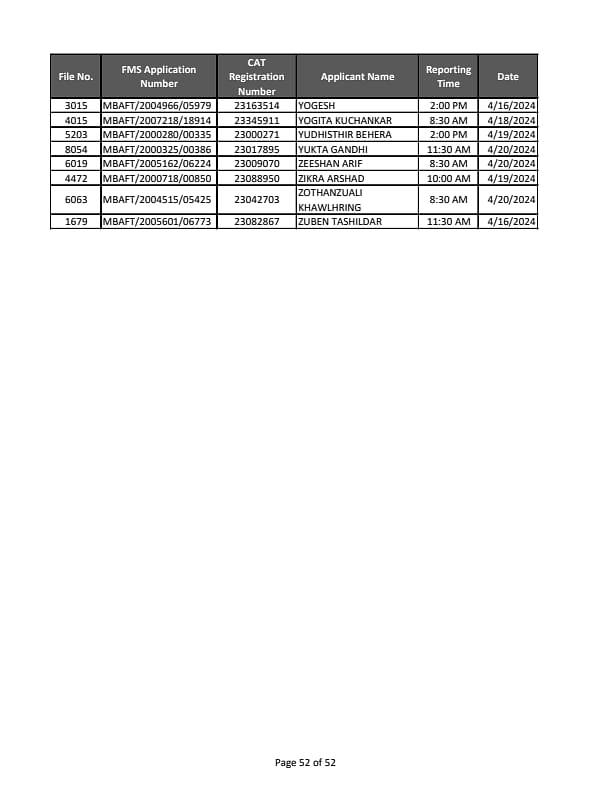
-min.png?h=78&w=78&mode=stretch)
-min.png?h=78&w=78&mode=stretch)
.png?h=78&w=78&mode=stretch)


![Shaheed Sukhdev College of Business Studies - [SSCBS]](https://image-static.collegedunia.com/public/college_data/images/appImage/1503656420cvr.png?h=111.44&w=263&mode=stretch)





![FORE School of Management - [FSM]](https://image-static.collegedunia.com/public/college_data/images/appImage/1635141433unnamed.png?h=111.44&w=263&mode=stretch)

![University of Delhi, Department of Financial Studies - [DFS]](https://image-static.collegedunia.com/public/college_data/images/appImage/28989_DFS_NEW.jpg?h=111.44&w=263&mode=stretch)


![MBA/PGDM | admission | 2024 | Narsee Monjee Institute of Management Studies - [NMIMS Deemed to be University]](https://image-static.collegedunia.com/public/college_data/images/logos/1506323004Logo.jpg?h=72&w=72&mode=stretch)



![MBA/PGDM | admission | 2024 | Indian Institute of Management - [IIMC]](https://image-static.collegedunia.com/public/college_data/images/logos/1488950580d2.png?h=72&w=72&mode=stretch)













![Aditi Mahavidyalaya - [AMV]](https://image-static.collegedunia.com/public/college_data/images/logos/1491907072logo.png?h=72&w=72&mode=stretch)
![Atma Ram Sanatan Dharma College - [ARSD]](https://image-static.collegedunia.com/public/college_data/images/logos/1491912596logo.png?h=72&w=72&mode=stretch)
![Bhagini Nivedita College - [BNC]](https://image-static.collegedunia.com/public/college_data/images/logos/1395655310Bhagini Nivedita College.png?h=72&w=72&mode=stretch)
![Bharati College - [BC]](https://image-static.collegedunia.com/public/college_data/images/logos/1395656554Bharati College.png?h=72&w=72&mode=stretch)
![Dr. Bhim Rao Ambedkar College - [BRAC]](https://image-static.collegedunia.com/public/college_data/images/logos/1492411231logo.png?h=72&w=72&mode=stretch)
![College of Vocational Studies - [CVS]](https://image-static.collegedunia.com/public/college_data/images/logos/1492415426logo.png?h=72&w=72&mode=stretch)
![Daulat Ram College - [DRC]](https://image-static.collegedunia.com/public/college_data/images/logos/1507912339daulatramcollegelogo.png?h=72&w=72&mode=stretch)

![Delhi College of Arts and Commerce - [DCAC]](https://image-static.collegedunia.com/public/college_data/images/logos/1491999035logo1.jpg?h=72&w=72&mode=stretch)
![Delhi School of Economics, University of Delhi - [DSE]](https://image-static.collegedunia.com/public/college_data/images/logos/1703734276mbadsebacombined1.png?h=72&w=72&mode=stretch)
-min.png?h=72&w=72&mode=stretch)
-min.png?h=72&w=72&mode=stretch)
.png?h=72&w=72&mode=stretch)
.png?h=72&w=72&mode=stretch)





![University of Delhi, Department of Financial Studies - [DFS]](https://image-static.collegedunia.com/public/college_data/images/logos/1690192927Untitled.jpg?h=72&w=72&mode=stretch)



![Department of Business Economics, University of Delhi - [DBE]](https://image-static.collegedunia.com/public/college_data/images/logos/1425462742Capture.jpg?h=72&w=72&mode=stretch)





Comments
Found 5 Comments
FMS Delhi goes beyond just leadership titles. They value well-rounded applicants with extracurriculars that demonstrate initiative, problem-solving, and a passion apart from academics. This could be leading a club project, participating in case-study competitions, or even creative interests like marketing, designing or even photography.
FMS Delhi provides admission to the MBA on the basis of CAT scores followed by discussion, personal interview and extempore. Following is the weightage:
The tips given by all the alumni or MBA students of FMS Delhi for the candidates preparing for MBA course are as follows:
FMS Delhi Admission to the Executive MBA program is based on Academic Scores, Discussion on Executive Experience & Statement of Purpose, Extempore, Discussion on National and International Business Affairs and Personal Interview. Discussion on Executive Experience & Statement of Purpose carries 25 marks in the selection process for the MBA admissions at the FMS Delhi.
FMS Delhi is a target college for many MBA aspirants in India. It consistently ranks in the higher strata among all the B-schools, with excellent placements. Here, the average package is around INR 34 lakhs and has a strong alumni network. Plus, the low fees compared to other top B-schools, obviously makes it a high ROI option.